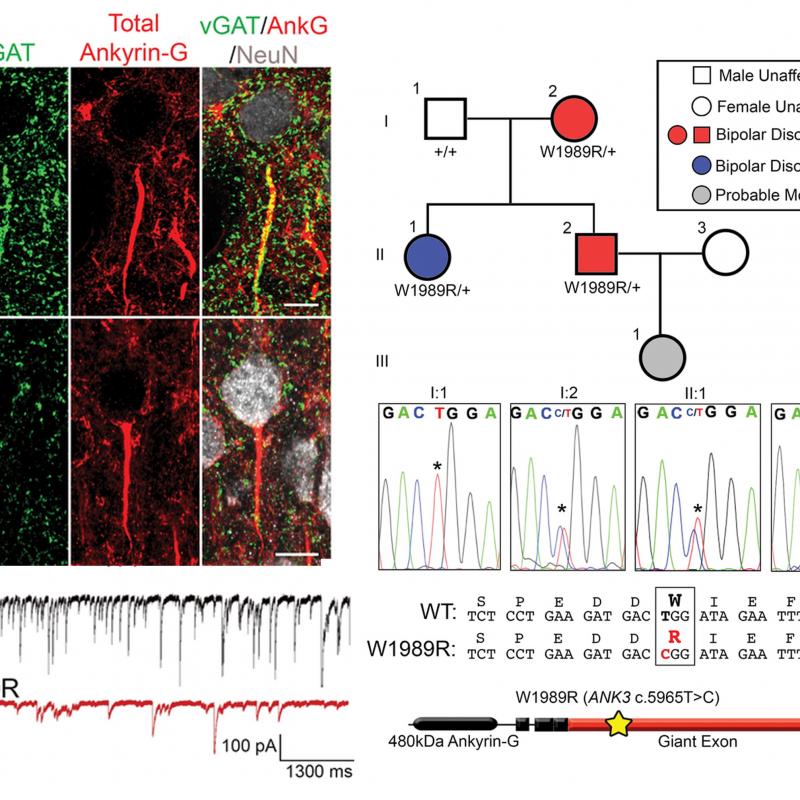Biography
Dr. Jenkins received his B.S. degree from the University of Michigan, and received a Ph.D. in Pharmacology from the University of Michigan. He continued his training as a postdoctoral fellow at the Howard Hughes Medical Institute at Duke University.
Dr. Jenkins is an Assistant Professor of Pharmacology and Psychiatry at the University of Michigan Medical School. During his postdoctoral work, Dr. Jenkins and colleagues uncovered a new role for a giant splice variant of ankyrin-G (product of the ANK3 gene) in the formation of critical circuits that are responsible for generation of gamma oscillations, critical brain rhythms that are often disrupted in bipolar patients. Dr. Jenkins’ current research is focused on understanding the cellular and molecular underpinnings of complex psychiatric diseases like bipolar disorder. The goal of his research is to identify the signaling pathways and circuits that are altered in disease in order to find better therapies.
As a researcher within the Heinz C. Prechter Bipolar Research Program, Dr. Jenkins is interested in the effects of human variants in the ANK3 gene on neuronal cell biology and cortical circuitry. To address this goal, his laboratory utilizes cellular and molecular biology, animal models, microscopy, electrophysiology, as well as human neurons derived from patients participating in the Prechter Longitudinal Study of Bipolar Disorder. The detailed clinical and biological data and patient samples gathered from the research volunteers are an extremely valuable source of information that can help us shed light on the mechanisms of disease and hopefully design better, more effective therapies for the treatment of bipolar disorder.

Spotlight on the Jenkins Lab in the U-M Department of Pharmacology

Paul Jenkins, Ph.D., awarded NARSAD Young Investigator Grant by the Brain & Behavior Research Foundation
NARSAD Young Investigator Grants cover a broad spectrum of mental illnesses and serve as catalysts for additional funding, providing researchers with “proof of concept” for their work.

One Mind "Brain Waves" Interview with Dr. Paul Jenkins
Brain Waves is an online channel hosted by One Mind, featuring videos of interviews with real brain scientists and advocates



